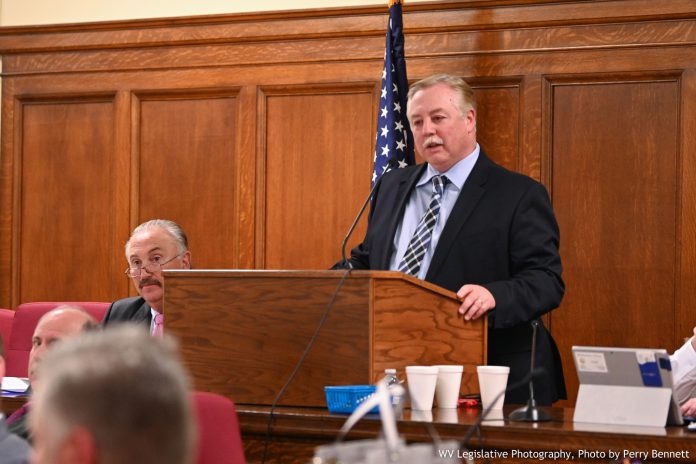A bill, which would establish a new retirement system for West Virginia Division of Natural Resources police officers, advanced out of House Finance Monday.
The retirement system proposed under House Bill 4363, is based off the deputy sheriff’s system, and would allow current officers to participate in the system along with any new officers.
For the first year, the employer contribution would be 10% with future contributions at 12%. Costs to set up the new system were estimated at $200,000, which the agency plans to cover. DNR Director Steve McDaniel told the committee that the agency loses two to three officers every year to other law enforcement agencies because of retirement options.
“We have lost two officers just this year,” McDaniel said, noting that having more competitive retirement benefits could save money because of the cost to train new people.
The new program was estimated to increase the unfunded actuarial liability to $3.5 million, amortized over 30 years. This includes transfers of 117 current active members of the PERS system to the new program. Under the bill, it is anticipated that officers would be able to retire sooner than under PERS.
The bill now heads before the full House.
Before tabling the bill, the committee debated legislation that would reduce the personal income tax.
House Bill 4892 would reduce the personal income tax by .25% of the current rate once certain triggers are reached. The bill proposed to establish a special revenue fund called the Personal Income Tax Reduction Fund, which would accumulate funds through internet sales, traditional lottery games known as Travel or Keno operated in convenience stores, gross terminal income from video lottery games, revenues from satellite racetrack facilities should they be created, everything from sports wagering, and everything from interactive gaming once it is up and running.
Funds would be used to replenish losses from the proposed personal income tax reduction. Once the revenue secretary determined the amount of personal income taxes that would have been collected had the income tax been reduced .25% compared to what was actually collected, and if the money in the special revenue account was 2.5 times what that amount would be, that would trigger the .25% reduction in personal income tax.
Delegates mentioned concerns with factoring in revenue from sources that are not up and running yet, such as satellite racetrack facilities, and also mentioned concerns that other obligations from these current revenue sources like senior centers, PEIA, and the Promise scholarship, would be superseded by reducing the income tax.
Two amendments were proposed to dedicate various amounts of revenue from adult use cannabis, should it be enacted, toward the special revenue fund created under the bill.
Delegate Paul Espinosa, R-Jefferson, made a motion to table the bill, which was adopted, because of the remaining questions and because there was no fiscal note.
Additionally, the House Finance Committee advanced Senate Bill 573, which was a supplemental appropriation for the 2020 fiscal year claims against the state.

